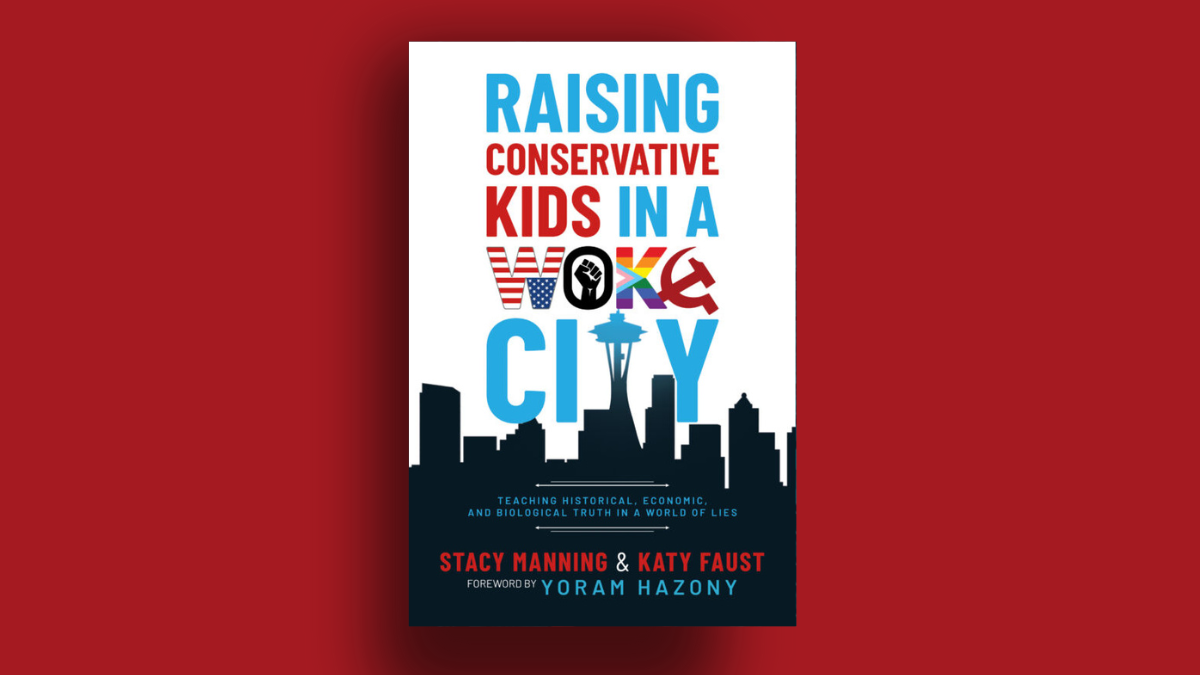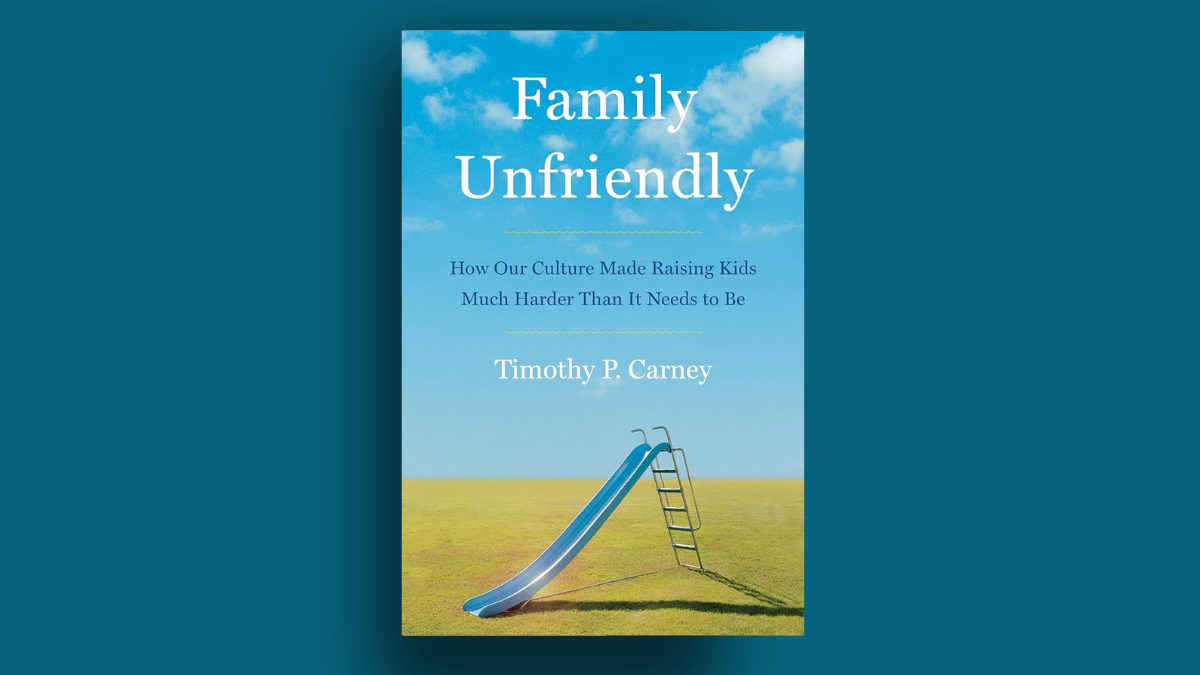To say that contemporary Western culture is not family-friendly would be something of an understatement. Rather, it’s positively hostile to families.
Whether it’s popular entertainment, schools, politicians, or even one’s neighbors, parents and their children are regularly pushed into terminal dysfunction. Virtue is derided while vices are celebrated; confusion and contradiction frequently overwhelm decency and common sense; and the feeling of optimism and commitment to excellence are now smothered by widespread anxiety and nihilism. As one would expect in such an environment, marriage and birth rates continue to plummet with little hope of recovering.
Of course, it’s a different story for the conservatives. Unlike their Democrat peers, conservative couples are far more likely to marry and have kids — and far less likely to feel bad about it. However, this puts them at odds with contemporary culture and presents more than a few challenges for raising their little ones. While some conservative families will find ways to shut out bad influences and go off the grid (i.e. the Benedict Option), everyone else is searching for ways to adapt to today’s circumstances.
To that end, conservative mothers Katy Faust and Stacy Manning have written a practical guide on how to survive, and even thrive, in today’s sick culture in their fittingly titled new book, Raising Conservative Kids in a Woke City: Teaching Historical, Economic, and Biological Truth in a World of Lies. Living in Seattle, one of the nation’s “wokest” cities, and being accomplished writers in their own right, Faust and Manning are uniquely suited to give advice and tell war stories for the rest of us parents facing the same struggles.
As political scholar Yoram Hazony explains in the foreward, “At the heart of this book is the belief that parents in communities overrun by the present cultural revolution have no choice but to go to war for their children.” Faust and Manning do not sugarcoat conservative parents’ dilemma but take it as a given that parents and children will have to fight.
The Very Model of a Modern Parent
Before they roll out their tactics for winning this battle, they first form the essential work of identifying the conservatism that parents are fighting for. Their definition is broad yet clear:
Conservative philosophy, at its core, recognizes and conforms to the base nature of human beings; that’s why the conservative approach to problem solving seeks its solutions by considering historical facts, accounting for biological reality, and relies on observable, time-tested, economic principles.
All this flies in the face of a progressive culture (“wokeness”) that seeks to transform human nature, build up false utopias, and deny basic reality to make this all happen. In the woke imagination, socialism works, sex is a spectrum, feelings trump facts, and governments can fix anything as long as they have enough power and money.
Not only is this kind of thinking fundamentally unsound, but it is also irresponsible, often attributing predictable failures to those who dissent. This is why Democrats are so adamant about stressing conformity and stigmatizing their opponents. Like most conservative Christians, Faust and Manning weren’t exactly looking for a confrontation, but they have no choice when so many people on the other side simply can’t agree to disagree. And sure enough, this experience will force people out of their comfort zone: “You’re going to have to broach many subjects that you wish you didn’t have to discuss with them earlier than you’d like. They’re going to have to hear about porn and white privilege from someone; that someone needs to be you.”
Once they’ve established conservative principles, Faust and Manning discuss how these ideas and habits are successfully inculcated into children from an early age. First, it’s best to stay informed (“Become an Expert”) and calm (practice the “No Flinch Rule”). In a Democrat-run city, conservative parents do not have much room for error. If they don’t do their homework on the issues or overreact to something a woke teacher said, they will alienate their kids who can easily find affirmation elsewhere. Instead, they need to be “a refuge” that offers protection from bad ideas as well as warmth and stability in a moral and intellectual wasteland.
This leads into the middle chapters of the book, organized around a process of gradual release, which is captured in the following formula:
Step 1. I do, you watch.
Step 2. I do, you help.
Step 3. You do, I help.
Step 4. You do, I watch.
When the children are young, parents should model correct behavior and thinking. As they grow older, children will help more and offer their own input. Around the time they hit middle school, parents will coach their children who will start engaging with the enemy. Finally, as they finish high school and enter college, the children will be their own advocates, do their own research, and try to save some of their classmates while their parents cheer them on.
Faust has previously given a condensed version of this idea in an essay for The Federalist, but the book allows her and Manning to share many of their stories, which tend to be the best parts of the book.
As a Texan teaching in a relatively conservative suburb in North Dallas, I admit I was utterly shocked at what some of these Seattle teachers are doing. So much instructional time is devoted to anti-white racism, pro-abortion and LGBT activism, as well as Marxist indoctrination. Faust’s and Manning’s children seem to make the most of it and learn the truth behind these issues, but it’s sad to think how many other children accept this warped agenda as a legitimate education. The only ones learning how to think, argue, read, write, and act maturely are the conservative students who push back. Meanwhile, the other students read (or pretend to read) bad books, write bad arguments, never grow up, and have to deal with a massive amount of cognitive dissonance their whole lives.
Fighting Back
The book finally concludes with some pointers about how to argue and teach effectively, specifically by avoiding personal attacks and finding allies. Both suggestions are indeed fundamental as temptations to “own the libs” and do it alone are strong for beleaguered conservatives.
Manning opens the chapter with her own harrowing story of being canceled to show what comes of the approach, asserting, “Attacking people only serves to reinforce your target’s opposition to your ideas and makes you their undying enemy.” If conservative ideas have a chance of converting the surrounding culture, their spokesmen can’t stoop to the level of the woke mob conducting a witch-hunt. It’s ugly, ineffective, and profoundly un-conservative.
Throughout the book, Faust and Manning are especially good at engaging their audience with humor and modesty. Despite so many infuriating clashes with the Democrat ignoramuses running Seattle, they remain happy warriors who see the big picture. Even if culture looks lost now, the future belongs to the people raising their children right, not today’s cultural gatekeepers. As they put it in their last chapter: “While the Woke might currently hold the cultural power, they are not producing children at a sustainable rate; so, if we conservatives can successfully prevent them from infecting the minds of our children, this nation could look very different in short order.”
If there were one fault in the book (and it’s a minor one), Faust and Manning occasionally overdo it with the humor, particularly with so many ironic footnotes. In moderation, this can help move an argument along and keep a reader interested — Peter Zeihan does this masterfully in The End of the World Is Just the Beginning. In excess, however, it can be a distraction and detract from the points being made, especially if some of the jokes don’t land.
That said, considering the relative dearth of literature on this topic, the very need for Raising Conservative Kids in a Woke City easily overcomes these few shortcomings. No longer do conservative parents need to flee to the hills or resign their children to the current madness. It’s possible to fight back — and to win.









